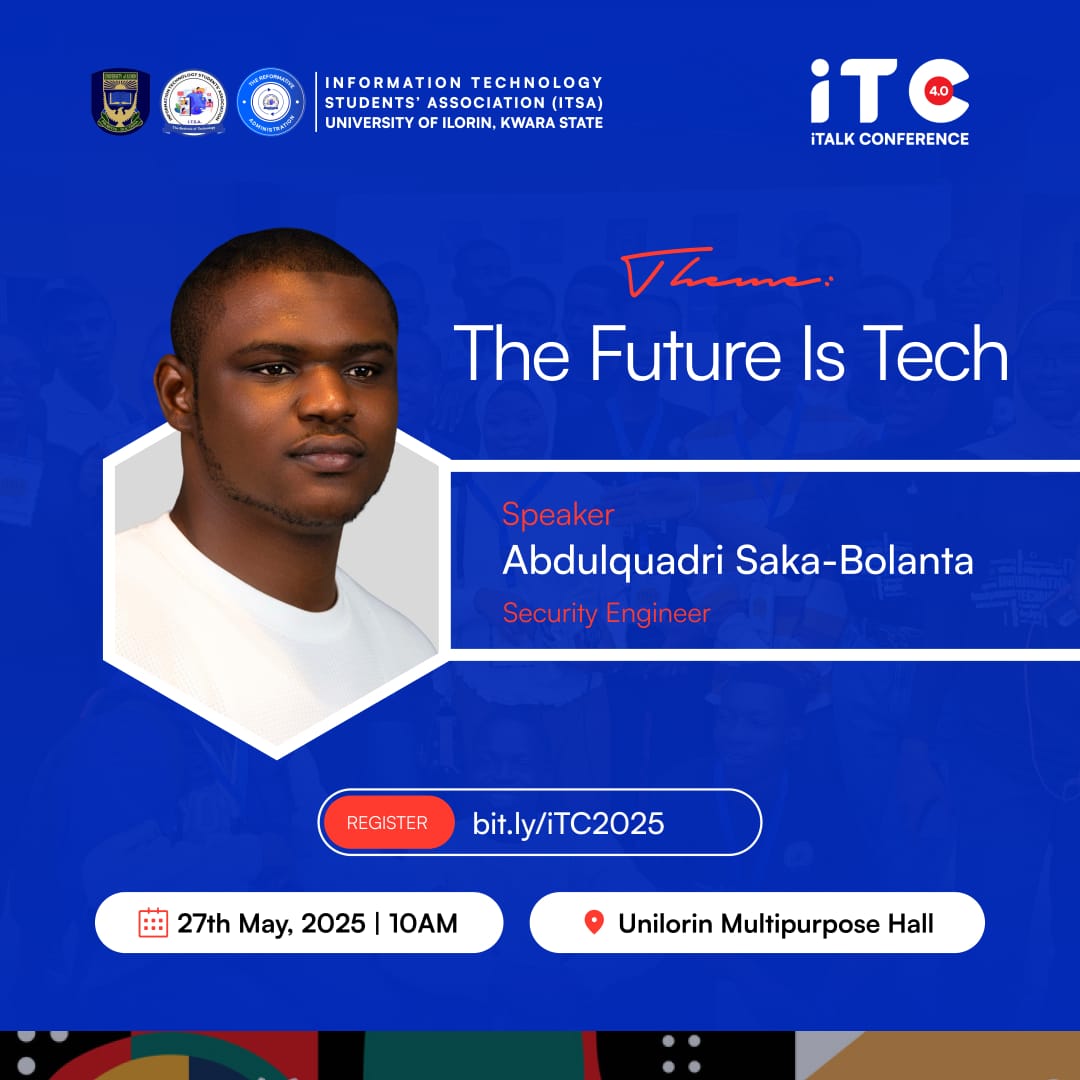The future of Tech in the Age of AI

In this talk, I discussed the strengths and weaknesses of AI and what the advancements in this technology mean for both budding professionals and established ones alike. I also addressed burning questions such as whether AI would replace humans in the workforce and whether it's still smart to pursue cognitive-laden and borderless professions like ethical hacking and software engineering.
On May 27th, I had the honor of speaking at the iTalk conference, organized by the Information Technology Students' Association at the University of Ilorin, Kwara State, on "The Future of Work in the Age of AI."
In this talk, I discussed the strengths and weaknesses of AI and what the advancements in this technology mean for both budding professionals and established ones alike. I also addressed burning questions such as whether AI would replace humans in the workforce and whether it's still smart to pursue cognitive-laden and borderless professions like ethical hacking and software engineering.
Key insights I shared:
Limitations of AI: While AI can outperform most professionals in cognitive tasks, its numerous flaws, which I dubbed "Artificial Incompetence," render it incapable of entirely replacing humans in cognitive work. AI remains prone to hallucination, lacks embodied experience and creativity, and crucially, in the case of generative AI, the quality of its output is dependent on the quality of its prompt. Consequently, to maximize its benefits, we need skilled humans with extensive experience.
The Reality of Job Impact: AI won't replace humans in cognitive tasks, but it will likely lead to job displacement in certain fields. Careers that require repetitive tasks and basic skills, such as data entry, face obsolescence, while complex technical roles will see augmentation rather than replacement.
Higher Barriers, Greater Opportunities: The future lies in Human-AI Integration. However, there will be higher barriers to entry for entry-level workers in cognitive careers, as AI will augment skilled professionals and replace the low-level, rule-based tasks typically assigned to newcomers learning the ropes.
Some Careers in Tech Worth Pursuing Now:
· AI/ML Engineering - Because you get to build the very system that is transforming the world.
· Cybersecurity - Because AI has vulnerabilities too, and as threats evolve with AI, so do the needs for digital investigations.
· Software Engineering - Because complex systems need real developers
· Data Science & Analytics - Because humans still interpret and act on data.
· Cloud Computing and DevOps - Because cloud architecture still requires thoughtful design.
· Product Management – Because product development requires vision, business sense, and user empathy.
· UI/UX - Because human designers understand human emotions
· Robotics & Embedded Systems - Because physical automation needs software, hardware, and human-aware control systems.
· Tech Ethics & AI Policy – Because we need humans to set its moral boundaries and legal frameworks.
My conclusion: To maximize the benefits of AI, we need skilled humans with extensive experience. The technology is only as good as the expertise guiding it.
Final Thought:
The future belongs to those who adapt, learn, and leverage AI as a powerful ally in their professional journey. Stay curious. Stay adaptable. Stay human.
You can find my full presentation in the comments below.